In recent years, apple snails, also known as stuffed snails, have been raised by many households in the province, bringing high economic efficiency and a stable consumption market.
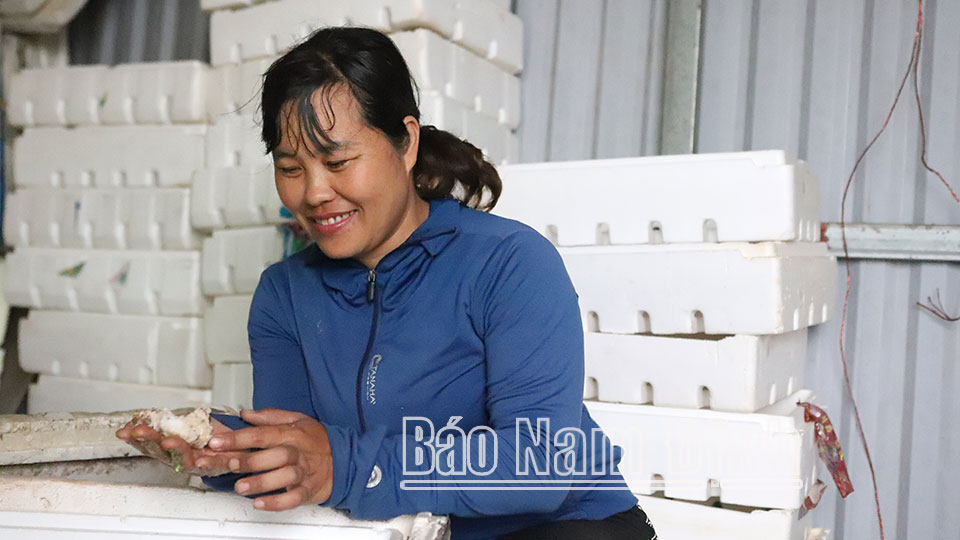 |
| Mr. Ho Sy Hoach's family, Xuan Chau commune (Xuan Truong) always ensures a source of quality snail seeds. |
Previously, due to the impact of pesticides used in the fields, especially pesticides to kill golden apple snails, apple snails almost no longer appeared in nature and on the market. However, in recent years, people in the districts have found ways to breed and raise apple snails commercially, bringing high economic efficiency. In the province, there are nearly 100 households successfully raising apple snails, including more than a dozen households raising large-scale snails with tens of thousands of snails per batch, with favorable consumption markets. A typical example is Mr. Ho Sy Hoach's household in Xuan Chau commune (Xuan Truong) who has been raising apple snails for nearly 7 years with an area of over 7,000m2 . Mr. Hoach said that in 2017, during a visit to a model of seed production and commercial snail farming in Thai Binh province, he realized that snails are easy to raise and care for, and that snails' food is quite diverse and available in nature such as vegetables, grass, tubers, fruits, etc., so he decided to invest in farming. At first, due to not understanding the techniques, the farming process in the summer did not ensure the water source to meet the temperature requirements, so snails died en masse. Not discouraged, Mr. Hoach spent a lot of time learning more about the reality of effective snail farming models to accumulate more knowledge and techniques. In the second farming season, he focused on treating the farming environment and water source well, cleaning duckweed and grass, using biological products to treat the bottom of the pond, then pumping water into the pond and maintaining the water level at 60-100cm to keep the snails safe. During the farming process, he always pays attention to providing just enough food, not leaving excess to pollute the pond environment, leading to snails easily dying. Thanks to mastering and applying science and technology in care and farming, the snails gradually develop and grow well. Along with production, Mr. Hoach proactively connects with consumer markets in neighboring provinces and participates in snail farming groups on social networks to find stable output. The snail farming process takes 3-4 months to sell at a price of about 60-70 thousand VND/kg. Apple snails reproduce all year round, but if left to reproduce naturally, the hatching rate is low. To proactively provide seeds and supply the market, Mr. Hoach has introduced the process of breeding parent snails into production. Every day, Mr. Hoach collects eggs and puts them in an incubator to ensure a quality source of seeds. He regularly checks and adjusts the temperature, keeping the incubator at the right humidity to create conditions for good egg development. According to him, in the summer, the eggs are incubated for 7-10 days before being transferred to the pond to raise snails. In the winter, it takes 15-20 days for the eggs to hatch. During the incubation process, he sprays water twice a day to maintain humidity. Every year, Mr. Hoach's family sells more than 1 million snails to the market. From producing snails and raising commercial snails to supply the market, after deducting expenses, his family earns a profit of over 300 million VND/year.
Mr. Nguyen Van Luan's snail farm in Xuan Truong town (Xuan Truong) consists of 9 ponds with about 100,000 parent snails and 100-150,000 snail seeds. Each month, he sells about 60-90kg of eggs at prices ranging from 400,000 VND to 1.3 million VND/kg depending on the time; 50-70,000 snail seeds at prices ranging from 2-5 million VND/10,000 snails and sells about 1 ton of commercial snails to the market. Each year, Mr. Luan's farm has a revenue of 500 million VND, after deducting expenses, he earns a profit of 150-200 million VND. Taking us on a tour of the snail farm, Mr. Luan said that apple snails have now become a "specialty" with high economic value on the market. During the farming process, in addition to focusing on water environment treatment, I always keep the motto "prevention is better than cure" for snails. When raising apple snails, you need to pay attention to the disease of swollen spout, which is the most dangerous disease in snails, easily causing mass deaths, so you need to monitor the pond regularly. If you observe that snails show signs of not eating, have swollen spouts, or have a foul smell, you need to isolate them immediately to treat the disease and prevent the spread of the disease." Not only does he enrich his family, he also enthusiastically guides many other farming households in and outside the district on snail farming techniques.
Mr. Hoang Van Hien's family in An Phu Hung village, Yen Thanh commune (Y Yen) has achieved high economic efficiency thanks to raising apple snails. Before "getting involved" in raising apple snails, Mr. Hien's family mainly raised pigs and raised traditional freshwater fish. African swine fever broke out in mid-2019, forcing the family's entire commercial pig herd to be completely destroyed. Worried that the disease might return, Mr. Hien did not re-raise the herd, and only raised traditional freshwater fish. Due to the low efficiency of raising freshwater fish, he decided to change direction to invest in new breeding. In 2021, after research, Mr. Hien found that apple snails were a potential breeding animal, so he boldly bought 60,000 snail seeds to try raising. Thanks to proper care and technical procedures, the snails began to grow and develop well. From the experience gained, Mr. Hien said that in the summer, when the weather is hot, he grows duckweed and water lilies, both as a source of supplementary food and as shade for the snails. In the winter, the snails hibernate so they do not need to be fed, just grow water hyacinth to avoid the cold. With the success of the first batch, in early 2022, Mr. Hien continued to invest funds and renovate more ponds with an area of over 3,000m2 . Currently, his model is maintaining the farming of apple snails in 21 cages, each cage is 10m2 wide; the remaining ponds are used to grow duckweed as food for the snails.
With effective investment direction and stable market, many models of apple snail farming have been successful, bringing high economic efficiency. Some households in Nam Toan commune (Nam Truc) have also started to experiment with apple snail farming, initially the snails have developed healthily and evenly. A typical example is Mr. Pham Van Thai's family in Thuong 1 hamlet, Nam Toan commune, experimenting with apple snail farming on a 100m2 pond. Due to careful research on the care process as well as farming techniques, the experimental farming was successful right from the start. In 2024, he plans to expand the scale as well as invest in equipment to raise apple snails, developing the household economy.
With a fairly high economic value and being favored by the market, apple snails are no longer a new species in the aquaculture industry in Nam Dinh province. It can be said that the apple snail farming model is an effective choice for many local people to replicate, contributing to promoting local economic development and creating opportunities to increase income for people. However, to be successful with the apple snail farming model, households need to have a suitable investment plan as well as learn about farming and care techniques, avoiding the situation of massive investment following the trend, leading to total loss and easy spread of disease./.
Article and photos: Thanh Hoa
Source
























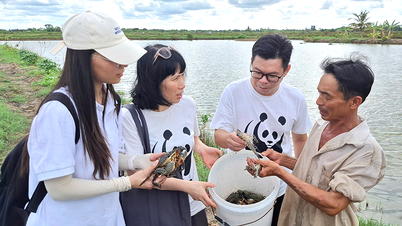











































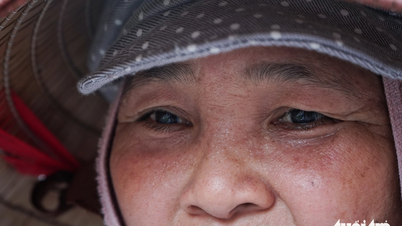












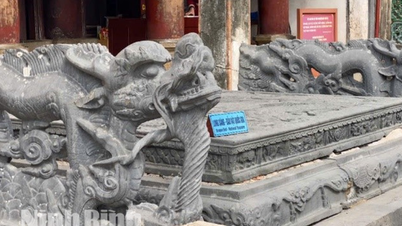


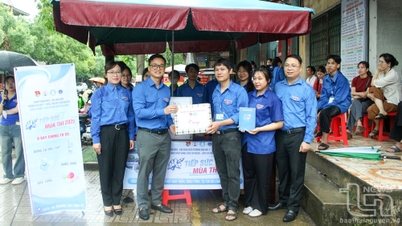

















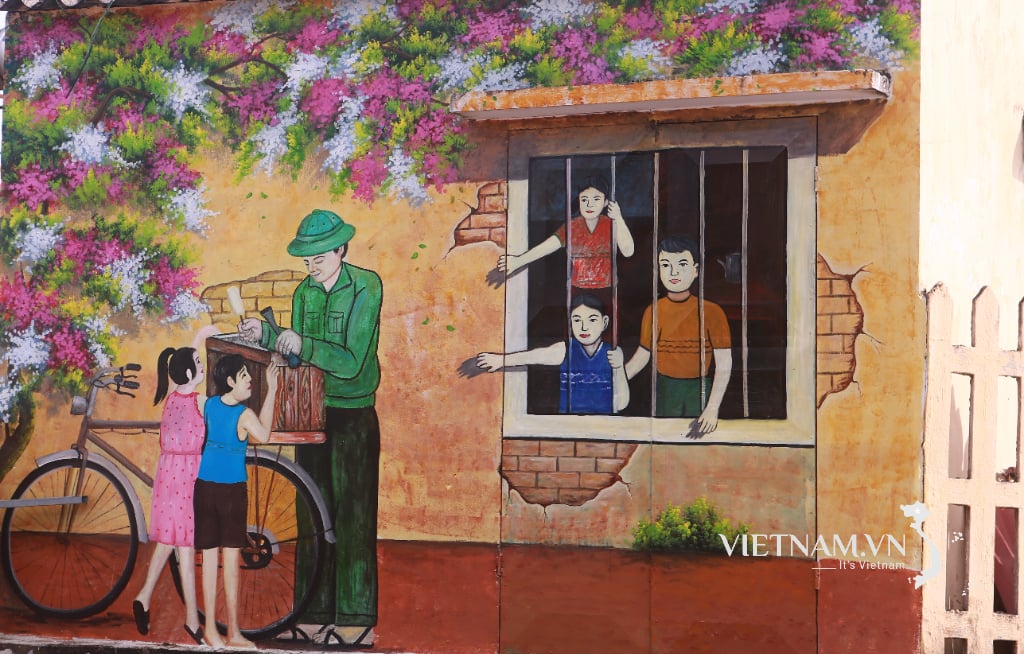

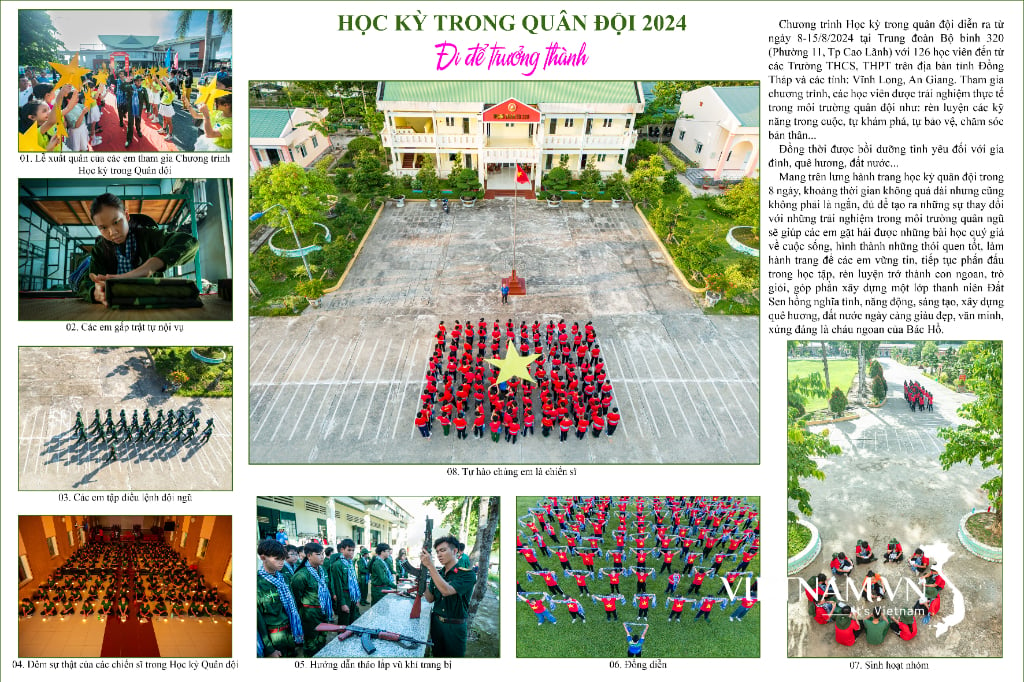
Comment (0)